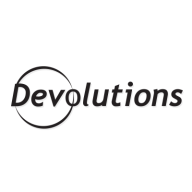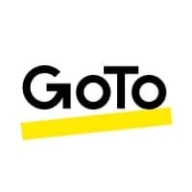


LogMeIn Pro and Devolutions Remote Desktop Manager are leading remote desktop solutions. Devolutions stands out for its robust features, while LogMeIn Pro is appreciated for ease of use.
Features: LogMeIn Pro users highlight valuable features such as remote access, file sharing, and cloud storage integration. Devolutions Remote Desktop Manager is praised for its extensive functionalities, including centralized access control, password management, and multiple protocol support.
Room for Improvement: LogMeIn Pro users suggest enhancements in speed and reliability, alongside a reduction in occasional connectivity issues. Devolutions users recommend more intuitive navigation and better documentation for complex features. LogMeIn requires stability improvements and Devolutions needs user experience refinements.
Ease of Deployment and Customer Service: LogMeIn Pro is noted for its straightforward installation and responsive customer support. Devolutions Remote Desktop Manager, while offering extensive deployment options, demands a steeper learning curve. Customer service feedback for both products is generally positive.
Pricing and ROI: LogMeIn Pro's setup costs and subscription fees align well with user expectations of ease and efficiency, offering satisfactory ROI. Devolutions Remote Desktop Manager has higher initial costs but justifies them through its rich feature set and long-term benefits. Users find Devolutions more cost-effective in the context of its extensive functionalities and security protocols.



Microsoft Intune provides centralized management of mobile devices and applications, ensuring security, compliance, and productivity through integration with Microsoft services like Microsoft 365 and Azure Active Directory.
Organizations use Intune for managing mobile devices and applications, enhancing security and compliance across platforms. With features like single sign-on, conditional access, and zero-touch deployment via Autopilot, it facilitates efficient operations. Intune's scalability, easy enrollment, and capabilities such as remote wipe support diverse device management, offering robust data protection and efficient operation. Despite its features, improvement areas include reporting, compatibility with non-Microsoft devices, and better support for macOS and Linux devices.
What are the key features of Microsoft Intune?
What benefits should users look for in reviews?
In industries such as finance, healthcare, and education, Microsoft Intune is implemented to ensure secure and compliant device management. Companies leverage its capabilities to deploy security policies and manage both corporate-owned and BYOD environments, facilitating a unified approach to data protection and compliance.
Remote Desktop Manager (RDM) centralizes all remote connections on a single, secure platform that can be shared across the entire team. With support for hundreds of integrated technologies—including multiple protocols and VPNs—RDM provides a comprehensive solution for managing remote access. It also features enterprise-grade password management tools, detailed access controls, and mobile apps that complement its desktop clients for Windows and Mac, and Linux.
RDM is designed to empower IT departments by enhancing security, speed, and productivity across the organization. By streamlining remote access management, it helps reduce inefficiencies, lower costs, and minimize risks, making it an essential tool for today’s IT environments.
We monitor all Remote Access reviews to prevent fraudulent reviews and keep review quality high. We do not post reviews by company employees or direct competitors. We validate each review for authenticity via cross-reference with LinkedIn, and personal follow-up with the reviewer when necessary.